
To be celebrated on 1st May 2019
Third Sunday of Easter
Gospel reading: John 21:1-19
vs.1 Jesus showed himself again to the disciples. It was by the Sea of Tiberias, and it happened like this:
vs.2 Simon Peter, Thomas called the Twin, Nathaniel from Cana in Galilee, the sons of Zebedee and two more of his disciples were together.
vs.3 Simon Peter said, “I’m going fishing.”
They replied, “We’ll come with you.” They went out and got into the boat but caught nothing that night.
vs.4 It was light by now and there stood Jesus on the shore, though the disciples did not realize that it was Jesus.
vs.5 Jesus called out, “Have you caught anything, friends?”
And when they answered, “No”,
vs.6 he said, “Throw the net out to starboard and you’ll find something.”
So they dropped the net, and there were so many fish that they could not haul it in.
vs.7 The disciple Jesus loved said to Peter, “It is the Lord”. At these words “It is the Lord”, Simon Peter, who had practically nothing on, wrapped his cloak round him and jumped into the water.
vs.8 The other disciples came on in the boat, towing the net and the fish; they were only about a hundred yards from land.
vs.9 As soon as they came ashore they saw that there was some bread there, and a charcoal fire with fish cooking on it.
vs.10 Jesus said, “Bring some of the fish you have just caught.”
vs.11 Simon Peter went aboard and dragged the net to the shore, full of big fish, one hundred and fifty-three of them; and in spite of there being so many the net was not broken.
vs.12 Jesus said to them, 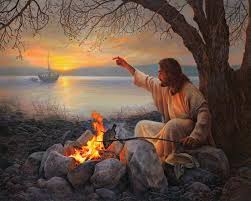
“Come and have breakfast.”
None of the disciples was bold enough to ask, “Who are you?”; they knew quite well it was the Lord.
vs.13 Jesus then stepped forward, took the bread and gave it to them, and the same with the fish.
vs.14 This was the third time that Jesus showed himself to the disciples after rising from the dead.
vs.15 After the meal Jesus said to Simon Peter,
“Simon son of John, do you love me more than these others do?” He answered, “Yes lord, you know I love you.”
Jesus said to him, “Feed my lambs.”
 vs.16 A second time he said to him, “Simon son of John, do you love me?”
vs.16 A second time he said to him, “Simon son of John, do you love me?”
He replied,
“Yes, Lord, you know I love you.”
Jesus said to him, “Look after my sheep.”
vs.17 Then he said to him a third time,
“Simon son of John, do you love me?” Peter was upset that he asked him the third time, “Do you love me?” and said,
“Lord, you know everything; you know I love you.”
Jesus said to him, “Feed my sheep.
vs.18 I tell you most solemnly, when you were young you put on your own belt and walked where you liked; but when you grow old you will stretch out your hands, and somebody else will put a belt round you and take you where you would rather not go.”
vs.19 In these words he indicated the kind of death by which Peter would give glory to God.
After that he said, “Follow me.”
*******************************************
We have four commentators available from whom you may wish to choose .
Michel DeVerteuil : A Trinidadian Holy Ghost Priest, director of the Centre of Biblical renewal .
Thomas O’Loughlin: Professor of Historical Theology, University of Northampton
Sean Goan: Studied scripture in Rome, Jerusalem and Chicago and teaches at Blackrock College and works with the Le Chéile Schools
Donal Neary SJ: Editor of The Sacred Heart Messenger
*******************************************
Michel de Verteuil
Lectio Divina, The Year of Luke
www.columba.ie
Textual Comments
During Easter the Sunday and weekday gospel readings are taken from St John’s gospel; this is the time of year when the Church invites us to meditate on this gospel. St John is always very deep; traditionally his is known as “the spiritual gospel”; these weeks should therefore be a time for us to deepen our meditations.
The passage for this coming Sunday is rather long and is a collection of different incidents. You will have to decide which of these to concentrate on. To get the full force of the passage remember that these incidents are told as if Jesus had not yet appeared to the disciples after his resurrection.
Verses 1 to 8 tell us the story of the miraculous catch. It is symbolic of what happens to us when we have experienced death and then experience resurrection. You might, however, prefer to concentrate on the role of Jesus.
Verses 9 to 14 are another story of a resurrection experience; here the stress is on Jesus welcoming the disciples.
In verses 15 to 17 Jesus welcomes Peter back into friendship with him. The connection between loving Jesus and feeding his sheep is significant.
Verse 18-19 is a word on the destiny of Peter which is the destiny of all who live long in the service of a cause.
There is a story of Peter running through the passage which you might like to look at, identifying with this most likable character; you will find this story in verses 2, 7, and 11.
Prayer reflections
Lord, we remember with gratitude our resurrection experiences:
* our marriage, or a deep friendship, had collapsed,
* a movement we believed in had broken up because of internal feuding,
* we had unexpectedly lost our job.
We went about our daily tasks, but without enthusiasm, just going through the motions,
like Simon Peter saying “I am going fishing” and the others answering “We’ll come with you.”
Nothing worked; it was a case of going out in the boat and catching nothing all night.
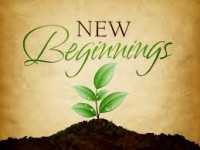 Gradually, however, as the weeks went by, a little light appeared,
Gradually, however, as the weeks went by, a little light appeared,
an inner voice told us that it was time to try again.
And suddenly things began to come right,
there were so many fish we could not haul them in.
We know now that the inner voice was your presence within us,
a presence that never fails us even though we don’t always recognise it at first,
like the disciples not realizing that it was Jesus standing on the shore.
Lord, send us leaders like Jesus who, when people are struggling,
do not harangue them, but stand alongside and offer advice so discreetly
that the people do not know they are there,
but it turns out to be just the right word,
and the people once more discover their creativity.
Lord, we thank you for people who have forgiven us,
– not a mean or calculating forgiveness,
– not harping on the ways in which we wronged them,
– but forgiving with the forgiveness of Jesus,
– so that it was like coming back from a hard night’s work
and seeing some bread there and a charcoal fire with fish cooking on it
– and the very person we had hurt saying “Come and have breakfast,”
– and we not having to ask any questions
because we knew that everything was forgiven.
“The best dreams of humanity are born in the night.” …Elie Weisel
Lord, we thank you for the great achievements that grew out of times of suffering:
* the courage of the Jews during the Holocaust,
* the creativity of slaves in the last century,
* the non-violence of those who fought for civil rights in the sixties.
They were the huge catch of fish the disciples made, so many that they could not haul them in.
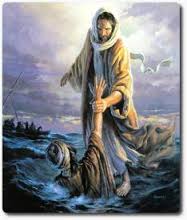
Learnng to trust in Jesus
Lord, we pray for those who train ministers in your church.
Teach them to call these future ministers to them as Jesus called Simon Peter, asking them,’ do you love Jesus?‘
And not to be satisfied with asking them once, but to ask three times
Even if this upsets them,
Because it is only if they have a personal relationship with Jesus that they are fit to pasture his sheep.
Lord, we pray for those who are getting married at this time.
Remind them that their commitment is for ever,
and that at one time in a relationship we are strong and walk where we like,
but another time comes when we have to stretch out our hands for help
and let the other person take charge of us,
even taking us where we would rather not go.
***********************************************
Thomas O’Loughlin,
Liturgical Resources for the Year of Luke
www.Columba.ie
Introduction to the Celebration
We are Easter people. That means we believe that in the event of the first Easter we see God’s plan for the universe and for each of our lives. The Christ has been raised to a new life and he shares that with each of his people. The grave is not life’s goal, but joy in the presence of the Father. But if we look forward to the coming kingdom, we must also live our lives in such a way that our world grows more like that world that God wants: we must act in ways that give life, enhance life, and not succumb to the ways of death and destruction. Let us spend a moment recalling that we are called to witness to life and reject the ways of death.

Homily Notes
1. We frequently use the language of being witnesses to the resurrection, but what does that really mean and how does it impact on our lives?
2. Bearing in mind the limitations of the homily format as a way of communicating (see ‘Homily Notes’ for the First Sunday of Lent, Year B), this is a question that can be offered to people in the assembly to think about and share with their neighbour.
3. If the congregation come to recognise the difficulties posed by this question for actual living, from a sharing with those near them that lasts five minutes, it will be five minutes well spent. The conclusion to the period of sharing could be simply the acknowledgement that ‘being witnesses to the resurrection‘ sounds lovely, but actually doing something about it is a far from easy. It is only after reflecting on this difficulty that we as a community move along the road towards being real witnesses.
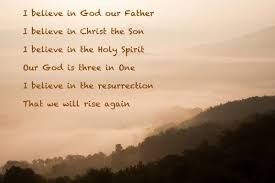
*****************************************************
3. Sean Goan
Let the reader understand
www.columba.ie
Gospel: John 21:1-19
This is the story of the last appearance of the risen Jesus in the gospel of John. It is unusual in that the events seem to take place not in the immediate aftermath of Easter but at some unspecified later period. The disciples seem uninspired and indeed uninspiring. All this changes through the presence of Christ. Suddenly their work is fruitful and now they are around him again as a community, receiving nourishment from him as their Bread of Life.
The second half of the story is also of great significance for through it we revisit the events of the passion when Peter, standing beside a charcoal fire, denied three times that he even knew Jesus. Now again beside a charcoal fire, Peter is given the opportunity to be fully reconciled to his Master and to tell him that he does indeed love him and to receive from Jesus his mission to care for the flock. This gospel is a reminder to us that without a living faith in the presence of Christ the church could easily become just another religious institution. To know our true identity as the People of God we must be open to hearing Jesus’ question and to observing his command: ‘Do you love me? ... then feed my sheep.‘
Reflection
The readings from the Book of Revelation will continue until Pentecost and they offer a challenge to us. On hearing of such strange visions we may wonder what is the point of reading this kind of material in the modern world? However, as far back as the fourth century people asked similar questions, but the church had a sense of the value of this writing and kept it in our Bible. 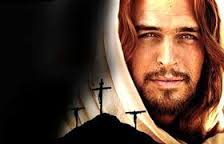 This wonderful book is full of hope while at the same time it does not minimise the scale of the problems faced by those who choose to walk the way of faith. It is noteworthy that the theme of praise and thanksgiving is more present here than in any other writing in the New Testament, and that makes it very fitting for the Easter Season.
This wonderful book is full of hope while at the same time it does not minimise the scale of the problems faced by those who choose to walk the way of faith. It is noteworthy that the theme of praise and thanksgiving is more present here than in any other writing in the New Testament, and that makes it very fitting for the Easter Season.
****************************************************
4. Donal Neary S.J.
Gospel reflections
www.messenger.ie/bookshop/
Tired disciples
Jesus spent time lighting the fire so he could cook breakfast on the seashore. Reminds me of my mother getting the fire ready in the old days so we could make toast with red embers on the long toasting fork. This is Jesus, the risen Jesus. No big apparitions in the sky, but just the simple act in the dawn of cooking bread and fish.
The meal was for tired disciples. Often in the gospel stories he talked about people preparing meals and serving them. He seemed to say a lot through meals and at meals. He allowed a woman dry his feet with her hair at a meal.
In cooking for people love is active. A mother might count up sometime how many meals she has cooked, and call them hours of love. This too is the mission and identity of Jesus.
After death and resurrection comes the Spirit of love. Love given, love received and love shared.
The breakfast meal will end with questions about love. Anything real about the resurrection always ends in being sent by God on the mission of Jesus. He gives little instruction about the mission nor even what it may entail. But it entails being led by God. Life for Jesus is life with Jesus and with the grace of God. We are never alone.
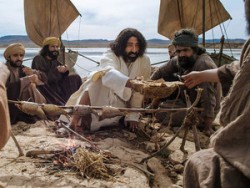
This is the company and the friendship at the source of the life of the soul, and which keeps our unique personality alive. This love comes in prayer and in love and in our loving service of others. This is mission with and for the risen Jesus Christ.
Risen Lord, increase my faith, hope and love.
********************************